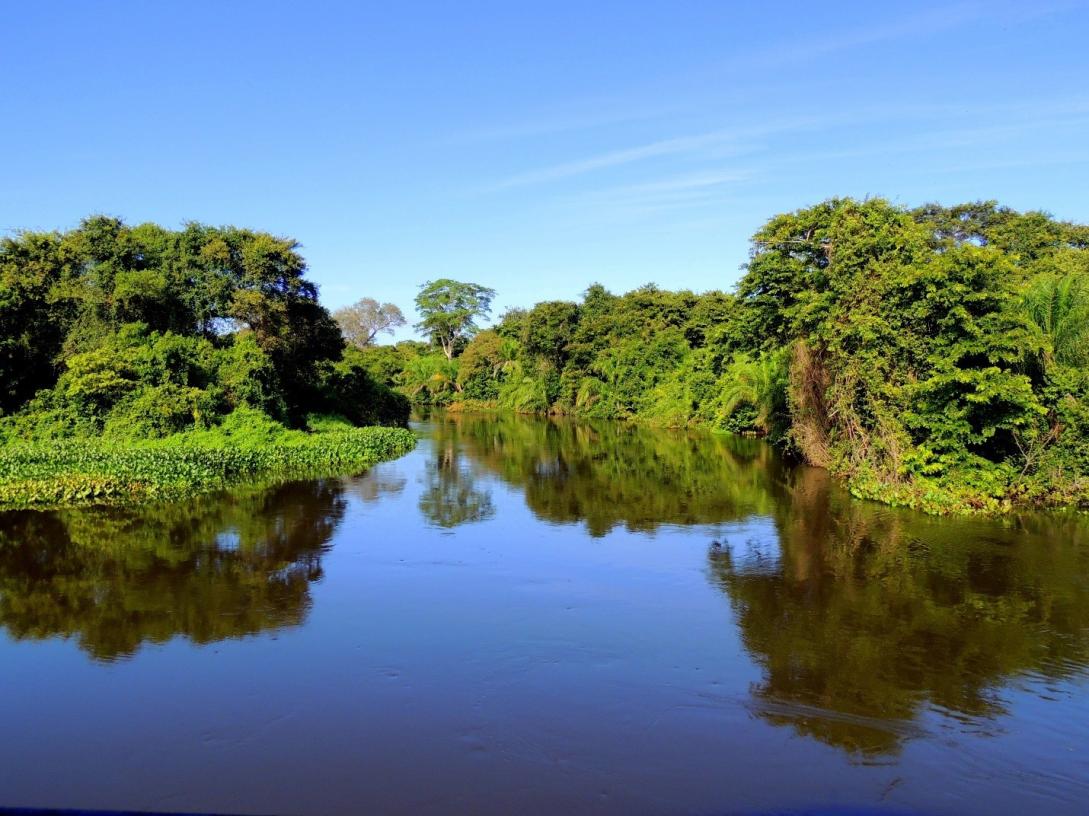Pantanal Initiative: LAIF’s contribution to sustainable management of water resources and environmental conservation

The Pantanal is the largest tropical wetland in the world. It covers 170,000 square kilometers shared between Bolivia, Brazil and Paraguay. This vast region is a mosaic of interconnected and interdependent biomes. However, the lack of incentives for its conservation, changes in the rainfall regime and other climate factors, together with its poor management, have led to the progressive drying out of this vital reserve. In response, the governments of these countries signed the Pantanal Declaration in 2018 during World Water Day, committing to its conservation and sustainable development. But coordinating the management of a natural resource between three countries is a significant challenge. To address the situation, a program of the Water and Sanitation Cooperation Fund, financed by the European Union through LAIF (Latin American Investment Facility) and executed by the Inter-American Development Bank (IDB), launched a technical cooperation to promote the Integrated Management of water resources in the Upper Basin of the Paraguay-Pantanal River.
This initiative aimed to help the governments of Bolivia, Brazil and Paraguay implement an integrated action to guarantee water security. To this end, studies have been carried out to evaluate a water balance that preserves the basins and optimizes water use and ecosystems conservation, considering both climate and non-climate effects, now and in the future. These actions have generated knowledge for better decision-making and will strengthen water governance and its connectivity.
The Pantanal Initiative has been articulated through international coordination processes, institutional contacts, identification of specific work areas, design of intervention and programming strategies and origination of technical-scientific studies.
The impact of the Pantanal Initiative
According to UN-Water, the pace of progress in safely managed services needs to quadruple to achieve the Sustainable Development Goal of access to water by 2030. At the current pace, in seven years, only 81% of the world's population will have access to these services, leaving 1.6 billion people without adequate coverage.
In Latin America and the Caribbean, more than half of the countries present levels of integrated water resources management implementation that range from medium-low to very low. To achieve the 2030 Sustainable Development Goals, these countries must significantly increase their implementation rate. Integrated water resources management is especially crucial for transboundary basins since more than 70% of surface waters in the region flow through basins shared between several countries. Therefore, joint management is essential for the protection of natural resources and the environment. A prominent example of these basins is the Pantanal.
Efficient management of the Pantanal will not only benefit Bolivia, Brazil and Paraguay, its conservation has a global relevance. The preservation of this wetland will contribute to the social and economic well-being of local communities and the conservation of ecosystem services, biodiversity and ecological connectivity. In its first months, the initiative has produced a detailed diagnosis of the Pantanal’s situation at a transboundary level, and the development of a new hydrological-hydraulic modeling tool for the three countries has begun.
The results of this project will also feed into a new IDB initiative in collaboration with the United Nations Environment Program (UNEP) and co-financed by the Global Environment Facility (GEF). This new phase will promote water security through strengthening transboundary water governance, sustainable development and integrated intersectoral management of the Pantanal.
This project has marked a milestone in the sustainable development and integrated management of one of the most important sources of fresh water in the region. IDB, the Spanish Agency for International Development Cooperation (AECID) and the European Union, through the Cooperation Fund for Water and Sanitation, are committed to projects such as the Pantanal. These efforts do not only improve water management, but also demonstrate the power of alliances between countries to protect a resource that transcends borders.
Click here to learn more about the lines of action of the Program “Promotion of investments in adaptation to climate change and integrated management of water resources for the water sector in Latin America, within the framework of the FCAS.”
External authors
Andrea Ortega Carreño is a Communication consultant for IDB and the Spanish Cooperation and supports the Spanish Cooperation Fund for Water and Sanitation for Latin America and the Caribbean (FECASALC). She is a doctoral student in feminist and gender studies at the Complutense University of Madrid.
Eveline Vasquez-Arroyo is a consultant for the Water and Sanitation Division of the Infrastructure and Energy Sector (WSA/INE) of IDB. Eveline is an environmental and natural resources engineer, with a Master's and Doctor’s Degree in Energy and Environmental Planning. She has several years of experience in the climate change sector and its relationship with the integration of water, energy and food security.
